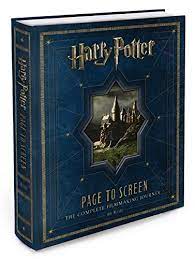From Page to Screen: The Journey of a Novel Becoming a Blockbuster
The alchemy of turning a beloved novel into a cinematic masterpiece is a delicate dance between literary artistry and visual storytelling. The journey from page to screen is a fascinating exploration of creativity, adaptation, and the magic that happens when a compelling story finds its way to the silver screen.
The Temptation of Adaptation The decision to adapt a novel into a film is often a tempting one, especially when the source material has captured the hearts and imaginations of readers. Hollywood, in particular, has a rich history of bringing bestselling novels to life, turning literary blockbusters into cinematic experiences.
The Filmmaking Process: Navigating Challenges Once the decision is made to adapt a novel, the filmmaking process kicks into high gear. Screenwriters, directors, and producers collaborate to distill the essence of the novel into a screenplay. This process involves navigating challenges, making creative decisions, and sometimes, condensing intricate plots to fit the constraints of a feature-length film.
Creative Choices: Balancing Fidelity and Interpretation One of the critical aspects of adapting a novel is making creative choices that balance fidelity to the source material with the need for cinematic interpretation. Filmmakers face the challenge of capturing the essence of the novel while embracing the unique language of cinema. These choices can include changes in narrative structure, character development, and even alterations to the ending.
Adaptation Success Stories: Bringing Novels to Life Some adaptations stand out as shining examples of successful transitions from page to screen. Think of J.K. Rowling’s “Harry Potter” series, J.R.R. Tolkien’s “The Lord of the Rings,” or Gillian Flynn’s “Gone Girl.” These adaptations not only captured the spirit of the novels but also introduced the stories to new audiences, achieving blockbuster success.
Challenges and Criticisms: The Inevitable Scrutiny Adaptations are not without their share of challenges and criticisms. Fans of the original novels often scrutinize every creative choice, comparing the film to the images they’ve conjured in their minds while reading. Striking a balance between appeasing devoted readers and creating a cinematic experience that stands on its own is a delicate tightrope walk.
Literary Blockbusters on Screen: A Cultural Phenomenon When a novel becomes a blockbuster on screen, it transcends the realm of literature to become a cultural phenomenon. The characters, themes, and iconic moments from the novel take on a new life, ingraining themselves in the collective consciousness of audiences worldwide.
Hollywood’s Love Affair with Book Adaptations Hollywood has a long-standing love affair with book adaptations, recognizing the built-in fan base and compelling stories that novels often provide. From classic literature to contemporary bestsellers, the allure of adapting a well-loved book for the silver screen is a powerful draw for filmmakers seeking to create cinematic magic.
The Evolution of Adaptation: Embracing Diverse Stories As filmmaking evolves, so does the art of adaptation. The industry has increasingly embraced diverse stories from various genres and cultures. This evolution not only broadens the representation on screen but also introduces audiences to a rich tapestry of narratives that span the literary landscape.
In conclusion, the journey from page to screen is a captivating exploration of storytelling in two distinct yet interconnected mediums. When executed successfully, a novel becoming a blockbuster is a testament to the power of narrative, the creativity of filmmakers, and the enduring magic that happens when words leap off the page to dance across the silver screen. As audiences continue to be enthralled by cinematic adaptations, the symbiotic relationship between literature and film remains a timeless and enchanting affair.












